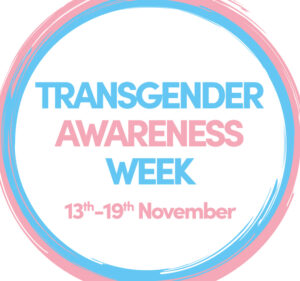
The majority of healthcare needs for a transgender person are just the same as any other person. And, like us all, trans people are entitled to open, respectful, sensitive care from healthcare providers. However, this unfortunately is not always the case, and there are often many difficulties for trans people to receive the level of care that they need and deserve. Let’s spread Awareness and look at where we can create change this Transgender awareness week and beyond.
Issues can include:
- GPs are not experienced in treating and managing patients with gender dysphoria and trans health issues. Gender dysphoria and gender identity issues are not part of the GP curriculum or GP specialty training.
- Under the NHS Constitution for England, the maximum waiting time for an initial specialist appointment following referral is 18 weeks. As of 2018, the average waiting time for an initial appointment at a Gender Identity Clinic (GIC) in England following a GP referral was 18 months.
- These long waiting times can have serious negative effects on people’s mental and physical health. This can also cause many people to go private with their healthcare causing extra expense to transition.
The National LGBT survey 2018 captured data about people’s experiences of healthcare:
- 40% of trans respondents who had accessed or tried to access public healthcare services reported having experienced at least one of a range of negative experiences because of their gender identity in the 12 months preceding the survey.
- 21% of trans respondents reported that their specific needs had been ignored or not taken into account, and
- 18% had avoided treatment for fear of a negative reaction.
- Under the Gender Recognition Act 2004, UK adults can change their legal sex only if they meet certain criteria. The main requirements include:
- A medical report of a gender dysphoria diagnosis
- Evidence of living full time in their acquired gender for at least two years
- A declaration that they will live permanently in their acquired gender
- They must be 18 or over and pay a £5 fee.
- This all falls under the context of increasingly damaging narrative around trans people perpetuated by the current government including banning trans people from their affirmed gender hospital wards.
There is also a more recent survey from a charity called TransActual to see the results from this click here. NB the report pool for this was smaller than the 2018 national survey.
These barriers exist despite the fact that legally, under the Equality Act (2010) trans people are entitled to freedom from discrimination when accessing healthcare. From the moment they begin their social transition (for example asking to be called a different name or starting to use different pronouns), trans people of any age are protected under the “gender reassignment” characteristic. There is no requirement to have obtained legal gender recognition or to have had any medical intervention. Non-binary people are protected from discrimination under the Equality Act (2010), as they are included within the “gender reassignment” characteristic.
Here, you can find a list of tips for trans people, written by trans people, for overcoming barriers in healthcare:
If you do experience discrimination when accessing healthcare, or are not given proper support, you can complain. To complain you should write to the practice manager detailing the problem. If your complaint is not properly handled, you should write to NHS England. There are details of how to make a complaint on the NHS website.
This is also something that cisgendered allies can do to help. If you become aware of a healthcare provider behaving negatively towards a trans person, you should also put forward a complaint.
While it is recognised within the healthcare community that there is an urgent need to address the barriers trans and gender-diverse people face in health care, it is vital that trans rights continue to be championed by us all.
Things you can do:
Speak out in support of transgender people and transgender rights. Politely correct others if they use the wrong name or pronoun for a transgender person. More broadly, it is important to challenge anti-transgender remarks, jokes, and conversations. It can be scary to speak out, but loud and visible support for transgender rights can show transgender people that they are accepted, encourage other allies to speak out, and help change the minds of people who aren’t supportive of transgender people yet.
Support transgender people who experience discrimination. Transgender people may feel that they don’t have support from others when making complaints about discrimination or bringing their experiences to authorities, administrators, or others in position of power. Make it clear that you will support the transgender people in your life whether or not they decide to make formal complaints.
Think about how you use gendered language. Do you regularly greet groups by saying, “Ladies and gentlemen?” Do you have a coworker who refers to everyone as “guys?” Is there a particular gender-based joke your friend loves to tell? Many transgender people are fine being called ‘ladies’ or ‘gentlemen,’ but you can’t know without first asking. Consider changing your habits to avoid making assumptions about people’s gender or pronouns, and encouraging the people in your life to do the same. This can take time and effort, but is an important way to be an ally and support transgender people outside of individual, face-to-face interactions.
Learn about policies affecting transgender people. Are there any laws that protect transgender people where you live? Any policies at work or school that are inclusive of transgender people? It’s important to learn more about the challenges that transgender people face and the goals of transgender advocates, and, if you’re comfortable with it, even help push to change bad laws and policies or support good ones.
Find out more about being a good ally here: Supporting the Transgender People in Your Life: A Guide to Being a Good Ally | National Center for Transgender Equality (transequality.org))
Trans rights are human rights!